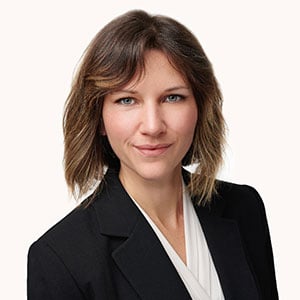Commonfund OCIO President and CEO, Tim Yates, sat down with panelists, Janine Anthony Bowen, Trustee of Georgia State University Foundation and Partner at BakerHostetler, Dr. Alison Morrison-Shetlar, President of University of Lynchburg, and Deborah Velazquez, President of Altman Foundation at Commonfund's 27th annual Commonfund Forum.
The three panelists represented the university that graduates the most Black students of any institution in the U.S. (Georgia State University), a cohort of higher education presidents that began their tenure during the COVID-19 pandemic (at University of Lynchburg), and a 112 year-old nonprofit organization that has stood the test of time through the Great Depression, Recession, the latest global pandemic, and more, in one of the largest cities in the country (Altman Foundation). Here’s what they had to say about this terrain-altering moment.





Four Most Pressing Challenges
1. The Business Model. Cracks have been forming in the foundation of the nonprofit business model, amounting over time to what now seems like a “seismic” shift. The dynamic in higher education is particularly tenuous, as the cost to both the institution and to students and families has become “out of control,” according to Morrison-Shetlar. The challenge for higher ed and the broader nonprofit segment is to evolve. In Morrison-Shetlar’s case, the path forward was to identify what the institution does best and focus on that.
2. Increasing Need. More students need financial aid, more grantees are struggling with funding, and more of the population in certain locations is falling into poverty, as is the case in New York City. The question surfaced: how can your institution do more with less while staying true to the institution’s mission in an increasingly dollar-constrained environment? Considerations around depth vs. breadth may be instructive.
3. Federal Policy. Business model challenges have been mounting for years, but the federal policy environment could be a tipping point for many institutions. Those across the educational and nonprofit sectors have already been impacted by funding cuts. If passed, proposals to increase the endowment tax or change charitable tax status would further constrain institutions’ abilities to meet the moment. Uncertainty in the policy landscape adds difficulty, but Velazquez suggested education and scenario planning are important action items.
4. Emerging Technology. AI will “leave no industry vertical untouched,” according to Bowen, who is a partner at a law firm that advises institutions on the technology. She instructed that understanding tech strategy and risk is part of both fiduciary and broader legal obligations, and that understanding uses, policies, and ethical implications is critical.
For the full discussion of these challenges, see the session recording here.
Opportunities and Paths Forward
The theme of Forum this year applies: it takes courage and purpose to understand the complexity of these interrelated challenges, and to act with dignity and clarity toward resolutions. All panelists emphasized the importance of Board governance in making hard decisions and ensuring your institution is doing the right thing for the right reasons. Collectively, opportunity lies in continuing to build resilient and enduring institutions and uplifting the value of the sector as a whole.
Click here for the full session and all other Forum takeaways.



